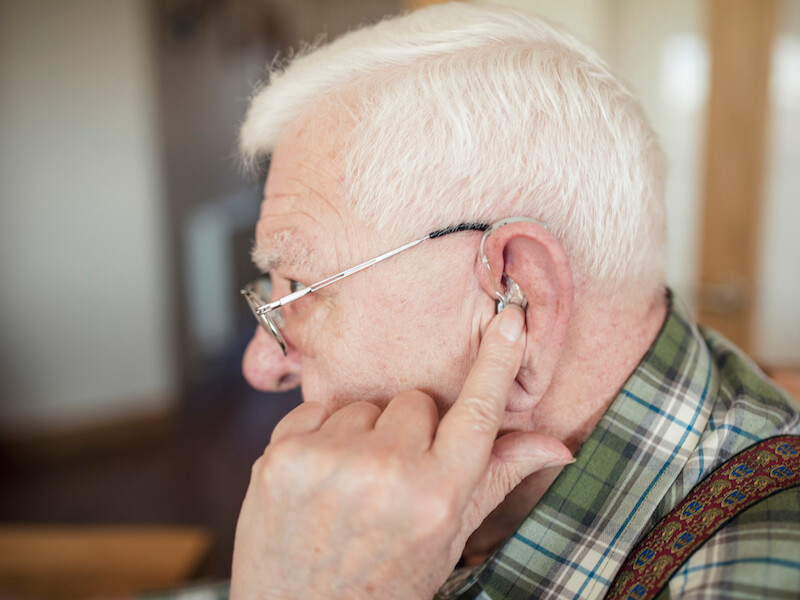
Do you feel as if your hearing aid batteries are not keeping a charge as long as they should? Here are some unexpected reasons that could occur.What is the average period of time that your hearing aid batteries should stay charged? The ordinary hearing aid battery should last between 3 and 7 days. That’s a very wide range. As a matter of fact, it’s so wide that it probably can’t help you predict what should be happening with your hearing aid. Things could suddenly get quiet when you’re trying to hear the cashier at the grocery store after 4 days of battery power. Or perhaps on day 5, you’re having an enjoyable conversation with friends when you suddenly feel very alone because you can’t hear what anyone is saying. Sometimes the batteries don’t even make that 3 day mark. Like when you’re watching TV on day 2 and all of a sudden you can’t hear the show your watching. It’s more than a little inconvenient. You’re missing out on life because you don’t know how much battery power is left in your hearing aids. If your hearing aid batteries are dying too quickly, there are several likely culprits.
Moisture Can Deplete a Battery
There aren’t many species that produce moisture through their skin but humans do. We do it to cool off. It’s the body’s way of ridding the blood of toxins and sodium. Moreover, you may live in a rainy or humid climate where things are even more moist. This additional moisture can clog the air vent in your device, making it less reliable. It can even drain the battery directly by interacting with the chemicals which generate electricity. You can prevent moisture-related battery drainage with these measures:
- if your storing them for a few days or more, take the batteries out
- Don’t keep your hearing aids in the bathroom, kitchen or other moist conditions
- Obtain a dehumidifier for your hearing aids
- Open the battery door before storing the hearing aids
Advanced Hearing Aid Features Can Deplete Batteries
You get a much better hearing aid now than you did even 10 years ago. But if you’re not keeping your eye on them, these advanced features can cause faster battery drain. You can still use your favorite features. But remember, you will have to change the battery sooner if you are streaming music from your phone all day. Your battery can be depleted by any of the advanced functions, like Bluetooth, multichannel, noise cancellation, and tinnitus relief.
Altitude Changes Can Affect Batteries Too
Your batteries can be sapped out if you go from low to high altitudes specifically if they are already low on juice. When skiing, flying or climbing always takes some spare batteries.
Maybe The Batteries Aren’t Really Low
Some hearing aids let you know when the battery is running low. These warnings are, under normal circumstances, a “heads up”. It doesn’t mean you have a dead battery. Additionally, the charge can occasionally drop temporarily due to environmental or altitude changes and that can activate a false low battery warning. In order to stop the alarm, take the batteries out, and then put them back in. The battery may last a few more hours or even days.
Improper Handling of Batteries
You should not take out the little tab from the battery until you’re ready to use it. Always wash your hands before touching your hearing aids or batteries to protect against getting dirt or hand oil on them. Hearing aid batteries should never be frozen. It doesn’t extend their life as it might with other types of batteries. Basic handling mistakes such as these can cause hearing aid batteries to drain more quickly.
Purchasing a Year’s Supply of Batteries Isn’t a Good Idea
When you can afford to do it, buying in bulk can be a smart idea. But the last few batteries in the pack most likely won’t have full power. Try to stick with a 6-month supply or less unless you’re okay with wasting a few.
Buying Hearing Aid Batteries on The Web
Buying from the web can be a good thing. There are some really good deals out in cyberspace. But some batteries that are available online are being sold by less honest individuals and are close to their expiration date. Or worse, it has already passed. So you need to be careful.
Both alkaline (AA, AAA, etc.) and zinc hearing aid batteries have a date they will expire. You wouldn’t buy milk without checking the expiration. You need to use the same amount of care with batteries. If you’re going to get the most out of your pack, make sure the date is well in the future. It’s probably a good idea to message the vendor if you don’t see an expiration date or even better, come see us for your battery needs. Make sure you know and trust the seller.
Now You Can Get Rechargeable Hearing Aids
There are a number of reasons that hearing batteries might drain quickly. But you can get more life out of your batteries by taking some precautions. If you’re in the market for a new pair of hearing aids, you might decide on a rechargeable model. If you charge them while you sleep, you get a full day of hearing the next day. The rechargeable batteries only need to be changed every few years.
